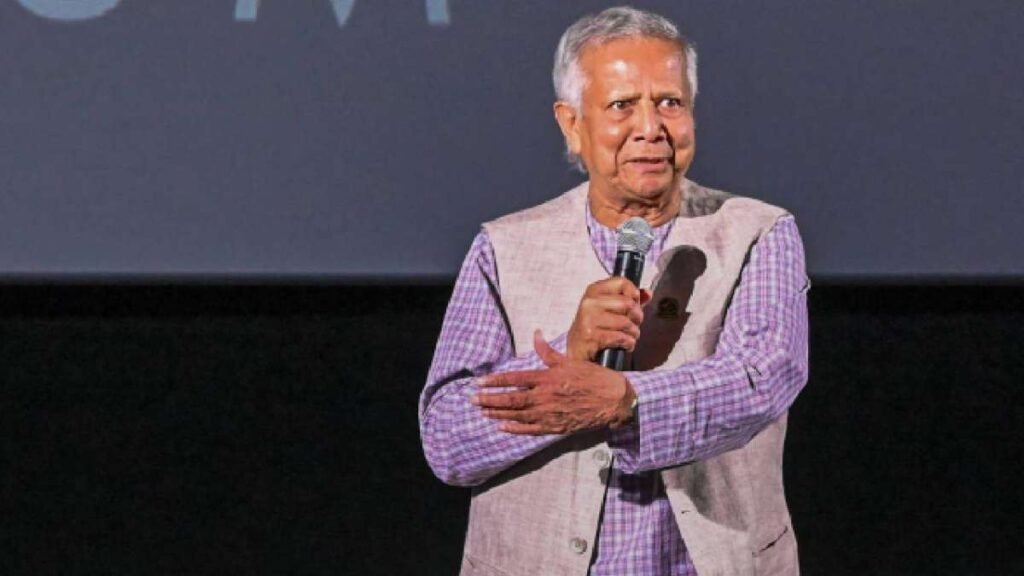In a previous visit to China, Muhammad Yunus had sought to position Bangladesh as a key regional partner for trade, logistics and manufacturing. Addressing Chinese officials, he pointed to the geographical constraints of India’s northeastern states.
Looking to court a controversy amid the India-Pakistan conflict that concluded in a ceasefire, the Bangladesh government’s Chief Adviser Professor Muhammad Yunus has again raked up India’s northeastern states as he proposed an economic integration plan including Nepal and Bhutan also.
During a meeting in Dhaka with the visiting deputy speaker of Nepal’s House of Representatives, Yunus emphasised the importance of cross-border cooperation in sectors such as hydropower, healthcare, and transport infrastructure.
Highlighting the need for deeper regional ties through shared projects, he said, “There should be an integrated economic plan for Bangladesh, Nepal, Bhutan and the Seven Sisters.”
The discussion focused particularly on hydropower collaboration between Bangladesh and Nepal, with both sides recognising the value of the recently signed Bangladesh-Nepal-India Tripartite Power Sales Agreement. This deal enables Bangladesh to import 40 megawatts of electricity from Nepal using India’s power grid.
Beyond energy, Yunus also underscored Bangladesh’s efforts to boost regional healthcare. He mentioned that a planned 1,000-bed hospital in Rangpur would be open to patients from Nepal and Bhutan, helping to strengthen what he termed “regional health security and shared prosperity.”
“Our upcoming 1,000-bed hospital in Rangpur will be open to patients from Nepal and Bhutan as well. We believe in regional health security and shared prosperity,” he said.
Yunus’ previous remarks on India’s Northeast
In a previous visit to China, Muhammad Yunus had sought to position Bangladesh as a key regional partner for trade, logistics and manufacturing. Addressing Chinese officials, he pointed to the geographical constraints of India’s northeastern states.
“Seven states of eastern India — the seven sisters — they are landlocked. They have no way to reach out to the ocean. We are the only guardian of the ocean,” he said, inviting greater Chinese economic engagement through Bangladesh.
He further encouraged China to collaborate with the region’s strengths: “Build things, produce things, market things. Nepal has hydropower, Bhutan has hydropower, we can bring to our purpose. You can produce in Bangladesh and sell in China.”
However, these comments drew criticism. Indian economist Sanjeev Sanyal, a member of the Prime Minister’s Economic Advisory Council, questioned the relevance of invoking India’s internal geography in a pitch to Beijing. He posted on X (formerly Twitter), “Interesting that Yunus is making a public appeal to the Chinese on the basis that 7 states in India are landlocked. China is welcome to invest in Bangladesh, but what exactly is the significance of 7 Indian states being landlocked?”
